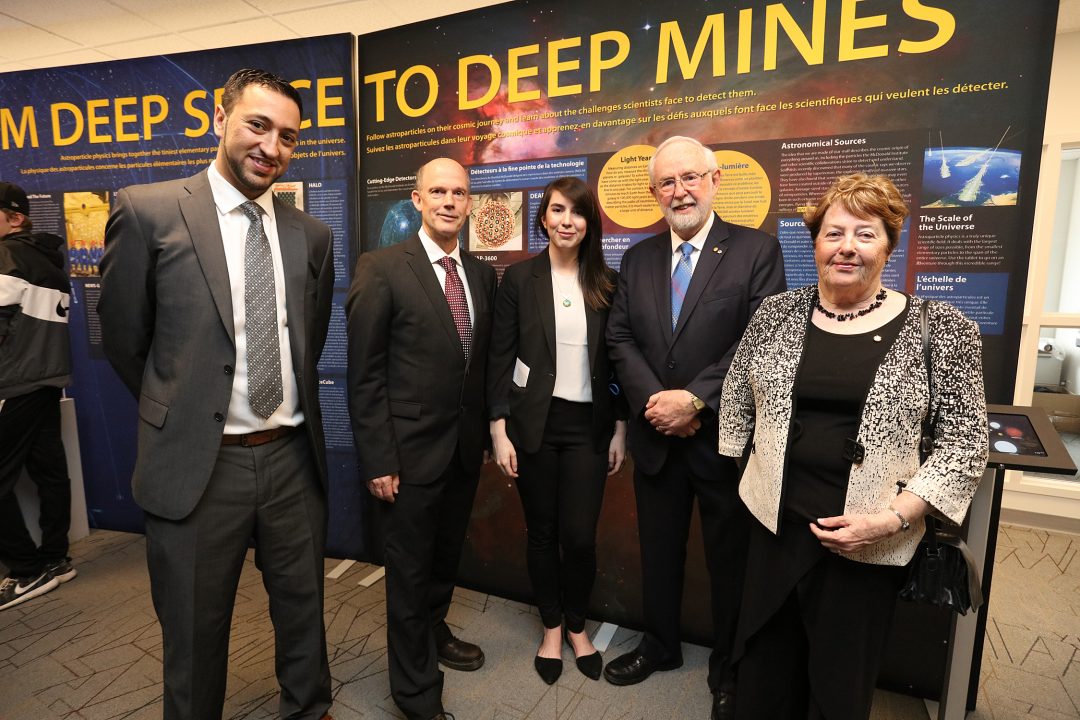News & Events
May 10, 2018
Arthur B. McDonald Canadian Astroparticle Physics Research Institute Launch

Canada is affirming as a world leader in astroparticle physics with the official launch of a new national research network dedicated to understanding some of the universe’s deepest mysteries.
The new Arthur B. McDonald Canadian Astroparticle Physics Research Institute is a partnership of eight universities and five affiliated research organizations. Headquartered at Queen’s, the institute was created as a result of the $63.7 million investment the university received in 2016 from the Government of Canada’s Canada First Research Excellence Fund. The Institute is named after Dr. Arthur B. McDonald, Nobel Laureate and Professor Emeritus at Queen’s University.
Over the past year and a half, the institute has been building momentum, appointing a scientific director and recruiting 13 new faculty members (out of 15 designated positions) from around the world. In total, 100 people, including faculty, staff, and students across the country will be members of the institute, all working to advance its research and outreach goals.
“This new institute will bring together unique expertise from across Canada and leverages over $255 million dollars of federal investment, with matching amounts from provincial partners, supporting astroparticle physics research over the last 20 years, including the leading experiments at the Sudbury Neutrino Observatory (SNO) and the SNOLAB,” says Dr. Tony Noble, Scientific Director of the McDonald Institute. “Although the dimensions of the particles we are studying are minute, the implications of these discoveries are monumental and fundamental to the very properties of science and our understanding of the formation and evolution of the universe.”
In addition to advancing research into areas such as the mysteries surrounding dark matter and neutrino science, the institute has a mandate for scientific outreach and to develop unique undergraduate and graduate student programing and opportunities.
“The McDonald Institute’s extensive research community and availability of funding for undergraduate and graduate students means that students will be able to contribute to the astroparticle physics community and the larger physics community as a whole,” says Liz Fletcher, Master’s Student, McDonald Institute. “By fostering of an amazing research environment across all of the McDonald Institute partner institutions, there will be an increase in opportunities for students to get involved, especially at the undergrad level, from summer positions to thesis and independent study projects.”
The McDonald Institute also unveiled its new visitor centre located in Stirling Hall at Queen’s. The visitor centre provides an opportunity for guests to engage with the science of the McDonald Institute, and also for Institute faculty and students to gain experience sharing their work with wider audiences.
